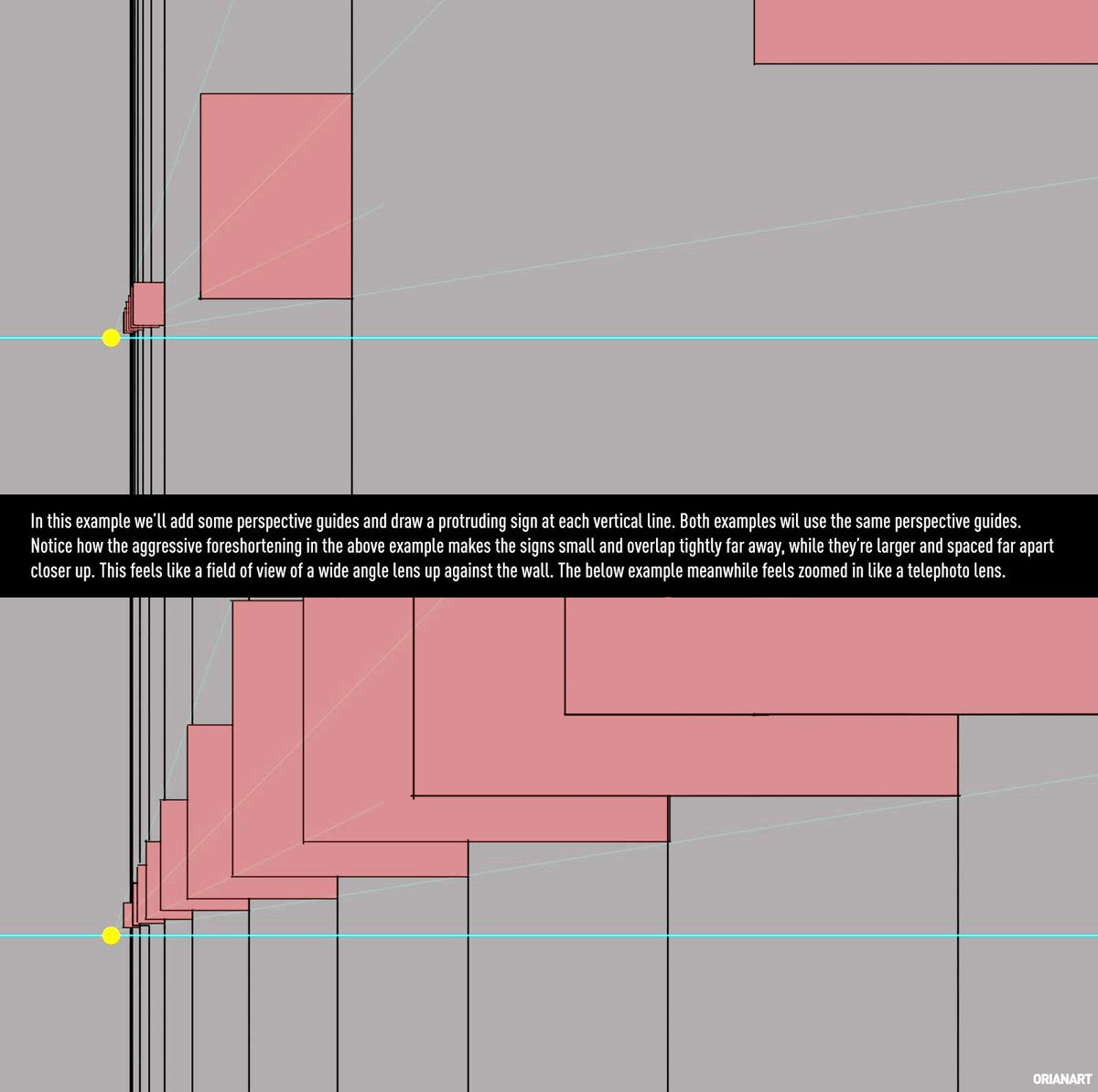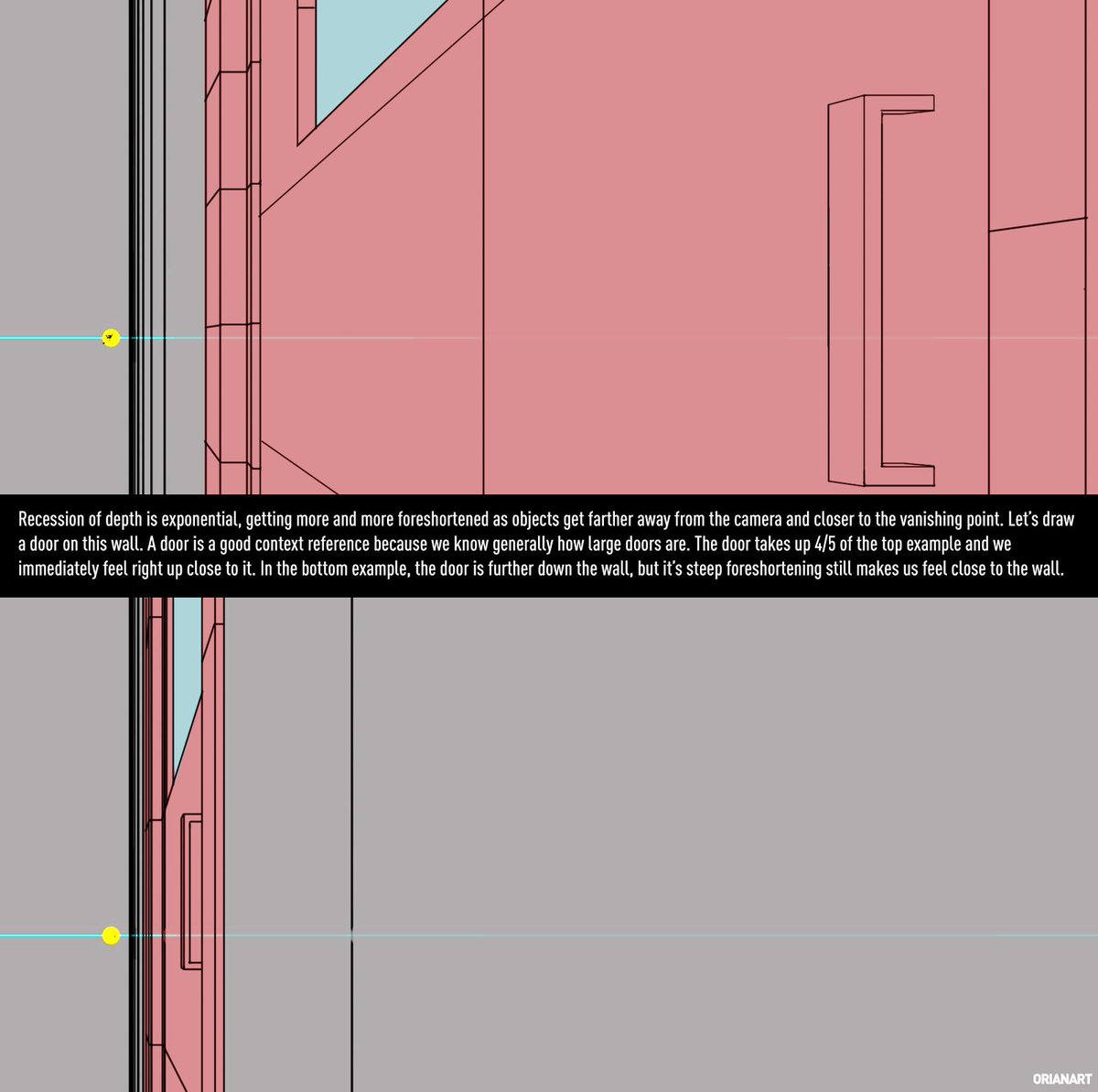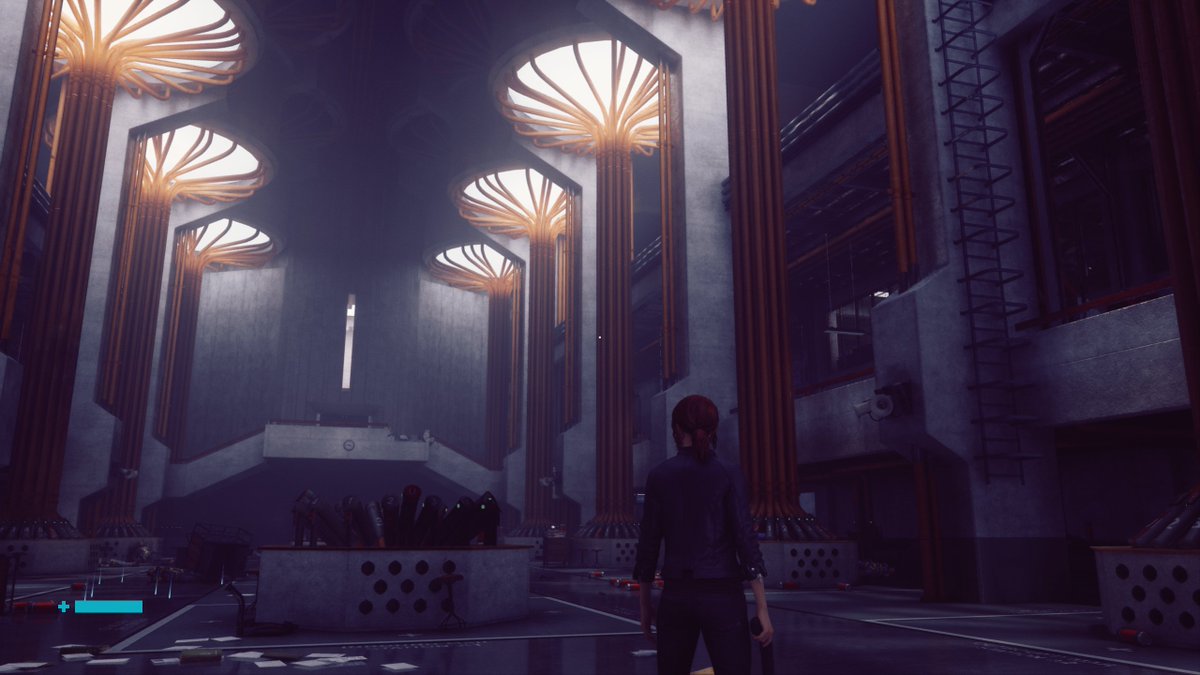A brief look at how rhythm of details in foreshortening relates to field of view, scale, and perspective.
#howtodraw #perspective #tutorial



#howtodraw #perspective #tutorial




STEEP foreshortening of details on walls etc can feel confusing at times since the feel of scale and distance from the surface is dependent on contextual details we recognize. If rotated, the those 'signs' could be dominoes standing up or buildings as seen from a helicopter.
And, with this I wanted to help demystify foreshortening in perspective a little by using a single repeating detail such as vertical lines with diminishing spacing and no other depth cues to show how that alone can affect the construction and feel of your scene.
• • •
Missing some Tweet in this thread? You can try to
force a refresh












